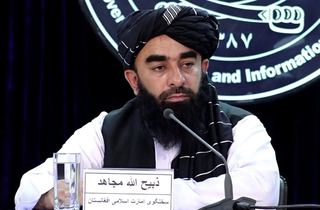“What is important is that no country should interfere in Afghanistan's internal affairs. It is not the responsibility of other nations to decide how the government should be, or who should and should not be included,” Spokesman Zabihullah Mujahid declared.
Earlier, Sergey Lavrov had expressed hope for the formation of an inclusive government in Afghanistan, highlighting the need for political inclusivity. Lavrov acknowledged the de facto government's control over the situation in Afghanistan but emphasized the existence of remaining tensions and protests in certain areas.
Political analysts weighed in on the diplomatic dynamics, suggesting that mutual compliance between the Islamic Emirate and the international community is essential. Moeen Gul Samkanai, a political analyst, underscored Russia's significance in the region, noting its role as a permanent member of the Security Council with veto powers.
"We hope that a real government will be established based on the beliefs and ideals of the Afghan people," commented Sediq Mansour Ansari, another political analyst, expressing the aspiration for the interim government to transition to an official status.
In an independent assessment, UN Special Coordinator for Afghanistan Feridun Sinirlioğlu highlighted the establishment of an inclusive government and the Islamic Emirate's commitment to women's rights as critical conditions for Afghanistan's reintegration into the international community.
As diplomatic discussions unfold, the world watches closely to see how Afghanistan's internal developments and international relations evolve in the coming months. (ILKHA)



 Güncel
Güncel
 Dünya
Dünya
 Dünya
Dünya
 Güncel
Güncel
 Dünya
Dünya
 Dünya
Dünya
 Dünya
Dünya
 Dünya
Dünya
 Güncel
Güncel
 Güncel
Güncel





